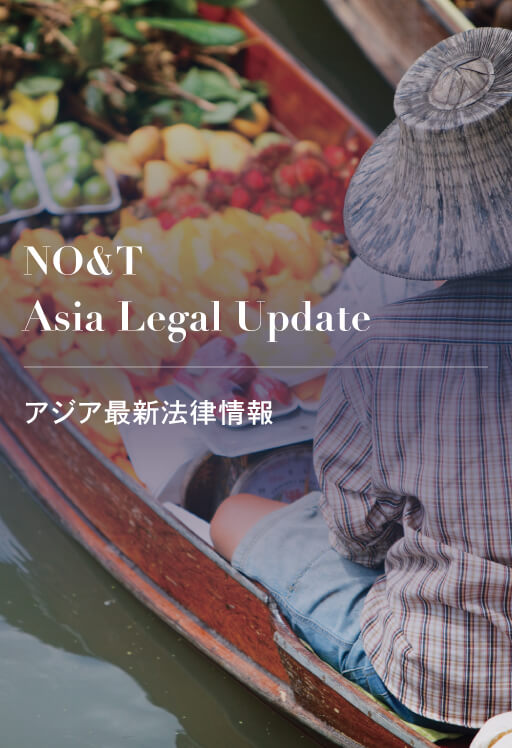
NO&T Japan Legal Update
英文
The amendment to the Arbitration Act of Japan (the “Arbitration Act”), passed by the Japanese Diet on April 21, 2023, will become effective within one year from the day of promulgation, April 28, 2023 (the “Amended Act”). The current Arbitration Act was enacted in 2003 based on 1985 UNCITRAL Model Law on International Commercial Arbitration. While the UNCITRAL Model Law was amended in 2006 (“2006 UNCITRAL Model Law”) and this amendment was adopted by many jurisdictions, the current Arbitration Act had not been amended for 20 years. The Amended Act seeks to incorporate changes adopted in 2006 UNCITRAL Model Law. Below we set out in brief an overview of the Amended Act.
While the current Arbitration Act provides that an arbitral tribunal may issue interim measures, it does not include any provisions affording courts the authority to enforce such interim measures. As such, interim measures have not been enforceable in Japanese courts, and a party obtaining interim measures via arbitration had no choice but to rely on voluntary compliance by the opposing party.
The Amended Act clarifies and organizes the types of interim measures and the requirements for issuing them. Specifically, the arbitral tribunal may order a party:
The Amended Act also establishes a specific system for Japanese courts to allow enforcement of interim measures ordered by the arbitral tribunal, regardless of whether the seat of arbitration is in Japan or not. In accordance with the types of interim measures described above, the Amended Act affords two routes for enforcement as follows:
For interim measures pursuant to “(a)” above:
The court will order to allow enforcement of the interim measure unless there is any stipulated ground for refusing such enforcement.
For interim measures pursuant to “(b),” “(c)” and “(d)” above:
Furthermore, the court may order (i) and (ii) simultaneously.
It should be noted that only interim measures “ordered by the arbitral tribunal” are enforceable under the Amended Act. In other words, the Amended Act does not establish a mechanism that allows for enforcement of interim measures ordered by an emergency arbitrator, who is appointed by arbitral institutions (such as JCAA, SIAC and ICC) under those institutional rules before the arbitral tribunal is constituted. Furthermore, the Amended Act does not stipulate whether the arbitral tribunal may grant interim measures on ex parte basis; this is left as a matter of interpretation.
Under the current Arbitration Act, an arbitration agreement is valid if it is in writing. While this requriement itself is not modified, the Amended Act enables an oral agreement to qualify as a written agreement under certain conditions.
The Amended Act provides that, if the seat of arbitration is in Japan, the Tokyo District Court and Osaka District Court have concurrent jurisdiction over arbitration-related cases including cases for enforcement of the arbitral award. The purpose of this amendment is to concentrate arbitration-related cases in Tokyo and Osaka district courts and thereby increase the arbitration expertise of these courts.
Under the current Arbitration Act, the party seeking to enforce the arbitral award is required to prepare a Japanese translation of the arbitral award and submit it to the relevant court unless the arbitral award is written in Japanese. This requirement was time consuming and often increased the cost of arbitration proceedings, especially in large-scaled international arbitration. In order to address this issue, the Amended Act provides that the court has the discretion to waive the submission of the translation of the arbitral award in whole or in part. This new regulation also applies to cases where the party seeks to enforce the interim measures.
Although international arbitration has been widely used as a means of international dispute resolution, even by Japanese companies, the number of cases in Japan remains low. To encourage the use of this method in Japan, the Japanese government has recently taken several measures to facilitate international arbitration in Japan. The implementation of the Amended Act is one of these efforts to demonstrate that Japanese arbitration legistration conforms to international practices.
This newsletter is given as general information for reference purposes only and therefore does not constitute our firm’s legal advice. Any opinion stated in this newsletter is a personal view of the author(s) and not our firm’s official view. For any specific matter or legal issue, please do not rely on this newsletter but make sure to consult a legal adviser. We would be delighted to answer your questions, if any.


田岛弘基


杉本花织


清水美彩惠


井上聪


杉本花织


井上聪


(2021年12月)
莫燕(共著)


莫燕(共著)


田岛弘基


井上聪


(2020年4月)
川合正伦


(2020年3月)
川合正伦